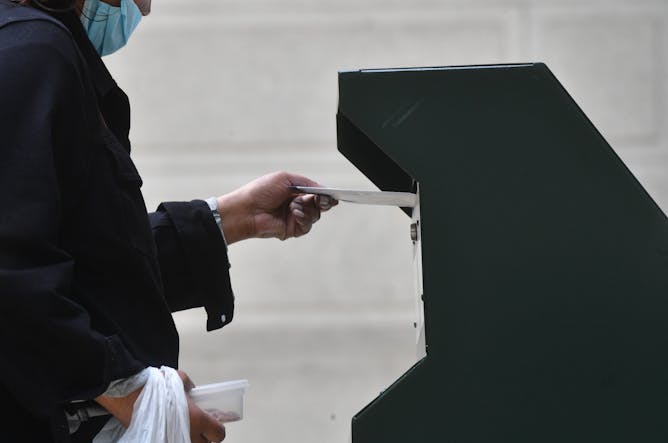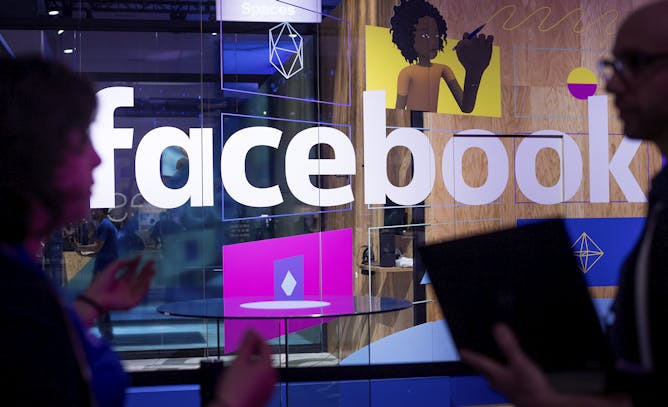|
We got there in the end. The runup to Election Day has felt like that famous philosopher’s paradox, the one where you get halfway to your destination, then half of the rest of the way, and half the remaining distance – without ever actually getting to the end. It’s been a long week.
But Election Day is finally upon us. Millions of voters are casting ballots in person, on the heels of record early voting and mail-in voting. And between the time when polls close and results are declared, there’s potential danger. The Conversation’s ace technology editor, Eric Smalley, has been carefully following two subjects for us, misinformation and possible election disruption. This morning, he attended a virtual seminar put on by the Election Integrity Project, whose purpose is to “detect and mitigate the impact of attempts to prevent or deter people from voting or to delegitimize election results.”
Here’s Eric’s report of what the session covered. You need to know this:
-
Russian efforts, by way of the shadowy Internet Research Agency, are focused on amplifying claims by Americans of fraud by Democrats, but unlike 2016 the Russian participation is getting dramatically less traction.
-
A major concern is entities purporting to be livestreaming video but who are in fact using old and/or unrelated video to create a false narrative. This was first seen during the George Floyd protests.
-
The danger zone is the time between the polls closing and results coming in. People will be anxiously watching for news and information, and entities pushing disinformation/misinformation will attempt to fill the news vacuum.
-
Things the Election Integrity Project is watching:
There is likely to be lots of online video showing incidents of intimidation that will be rapidly decontextualized and used to delegitimize the election.
Both Facebook and Twitter will be labeling problematic posts, but only Twitter disallows sharing of those posts. Will Facebook need to follow suit?
Below are several stories about misinformation and how to be a good digital citizen during this crucial period, when bad actors want to mess with our democracy.
|

As American voters cast their ballots, they are also being targeted with foreign disinformation.
Mark Makela/Getty Images
Scott Jasper, Naval Postgraduate School
As Election Day approaches, Americans would do well to remember they are targets of disinformation campaigns. Here's what they could look like, and what's being done about them.
|

Facebook and the other social media platform companies are facing a reckoning for their handling of disinformation.
AP Photo/Noah Berger
Scott Shackelford, Indiana University
The major social media firms have taken a largely piecemeal and fractured approach to managing the problem.
|

You are a key player in efforts to curb misinformation online.
John Fedele/The Image Bank via Getty Images
Kolina Koltai, University of Washington
That "friend of a friend" post you're thinking about sharing on social media could make you an unwitting accomplice in a disinformation campaign.
|